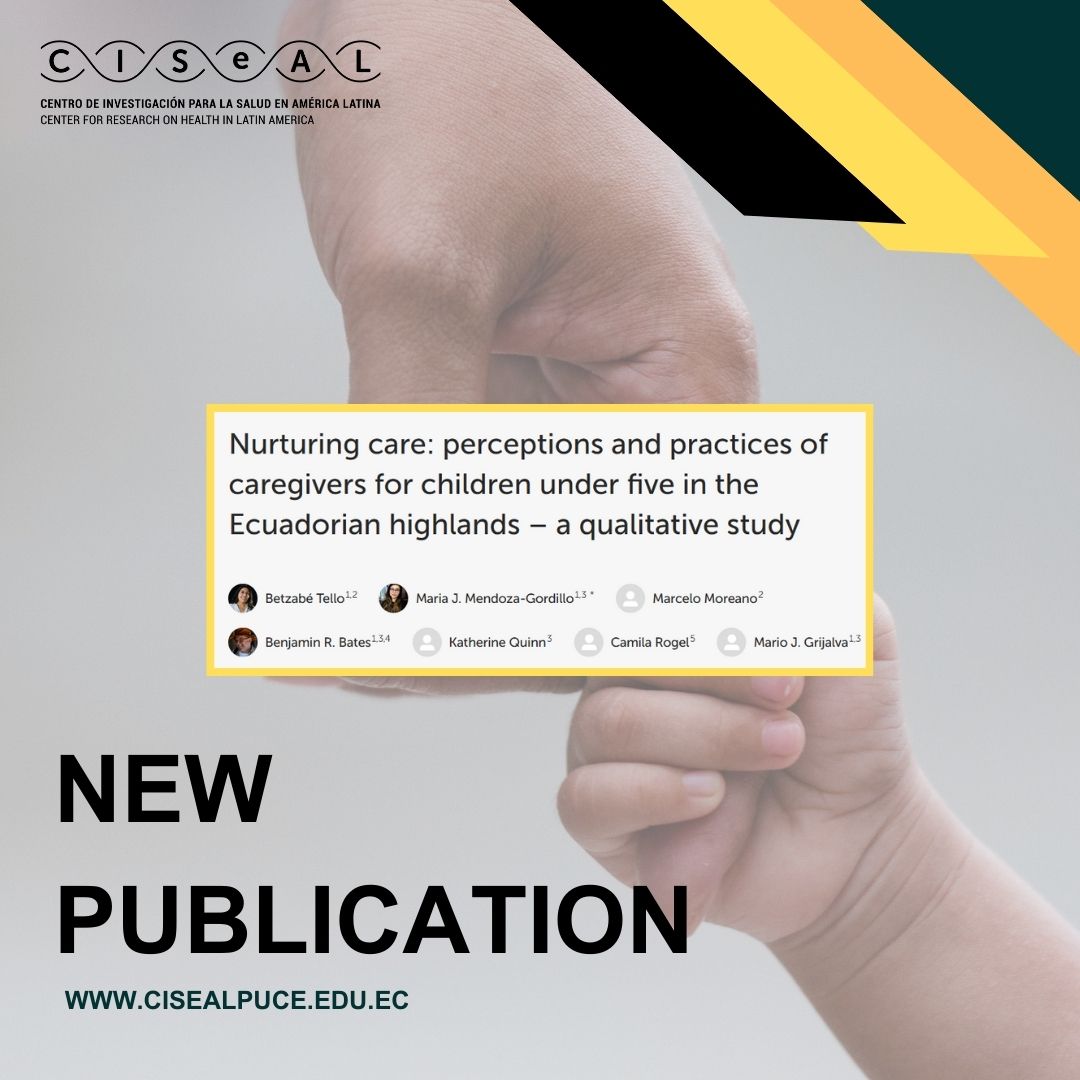 Our CISeAL researchers Betzabé Tello, Maria J. Mendoza-Gordillo and Mario J. Grijalva along with other experts conducted a study to understand how caregivers in rural Ecuador perceive and apply child care. The importance of establishing a solid foundation in the first 1,000 days of a child's life, from conception to age two, is widely recognized as it influences their emotional, cognitive development and long-term health. The WHO's Caring and Responsive Care framework provides comprehensive guidance that includes health, nutrition, responsive care, safety, and early learning opportunities essential for children's optimal development.
Our CISeAL researchers Betzabé Tello, Maria J. Mendoza-Gordillo and Mario J. Grijalva along with other experts conducted a study to understand how caregivers in rural Ecuador perceive and apply child care. The importance of establishing a solid foundation in the first 1,000 days of a child's life, from conception to age two, is widely recognized as it influences their emotional, cognitive development and long-term health. The WHO's Caring and Responsive Care framework provides comprehensive guidance that includes health, nutrition, responsive care, safety, and early learning opportunities essential for children's optimal development.
The study investigated child care in rural communities in the provinces of Cotopaxi and Loja, where challenges such as poverty, malnutrition and limited access to basic services persist. Interviews and focus groups were conducted with caregivers, health professionals, and community leaders to explore child care practices in a culturally diverse context and in resource-limited settings.
The study reveals a lack of knowledge about the Concept of Caring and Sensitive Care, although participants apply related practices. Cultural barriers, myths about complementary feeding and lack of trust in health facilities are identified as challenges to child health and development in these communities. The study highlights the need for culturally adapted interventions and training for health professionals and educators in order to improve child care in rural regions of Ecuador.
If you want to know more about this study we invite you to read the full article in the following link:
https://www.frontiersin.org/journals/public-health/articles/10.3389/fpubh.2024.1373896/full



